Africa
Sahel ministers visit Moscow to strengthen ties with Russia
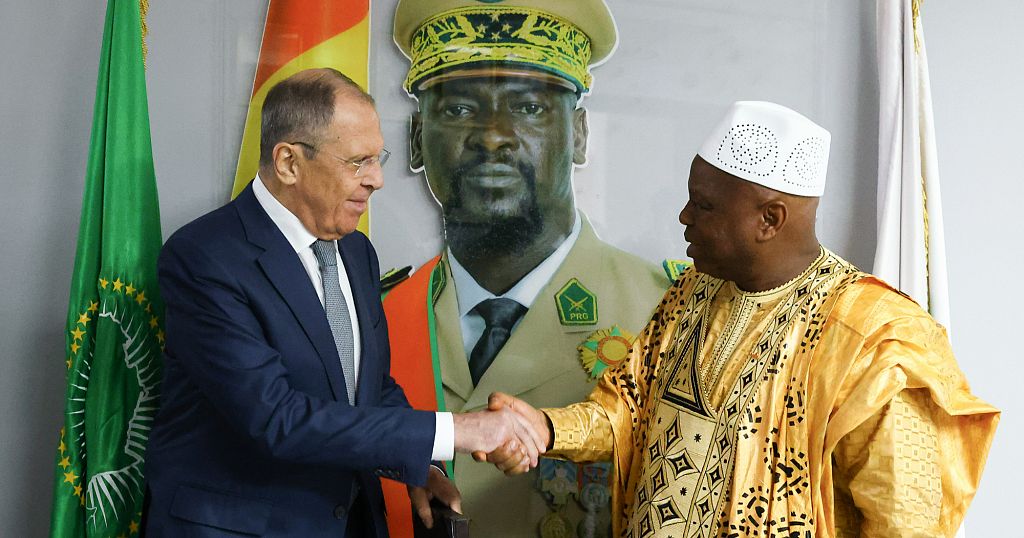
In a significant shift in the region’s diplomatic and security landscape, the foreign ministers of Mali, Burkina Faso, and Niger will visit Moscow this week to deepen their strategic ties with Russia.
Scheduled for April 3-4, this marks the first AES-Russia consultations since the formation of the Confederation of Sahel States (AES) in 2024.
The visit underscores a growing pivot away from former colonial power France and the regional organization ECOWAS, with these West African nations, governed by military juntas following a series of coups between 2020 and 2023, seeking political and military support from Moscow.
This realignment comes as the Sahel region grapples with ongoing jihadist insurgencies that have devastated local populations, claiming thousands of lives.
As part of the AES’s Year 1 Roadmap, chaired by Mali, the ministers will engage with Russian Foreign Minister Sergei Lavrov to discuss enhanced cooperation in defense, security, and economic development.
The AES sees the visit as a “crucial step” toward advancing its shared goals.
Russia has already contributed military support via its Wagner Group, and the three nations have signed defense agreements with Moscow. Collaboration is also underway in the energy and mining sectors.
The visit follows the AES’s decision to withdraw from multiple international organizations and establish a joint 5,000-strong military force aimed at tackling regional terrorism.
By strengthening ties with Russia, the Sahel states aim to bolster their security efforts and assert greater autonomy from Western influence.
Africa
Russia’s Lavrov accuses Ukraine of destabilising Sahel
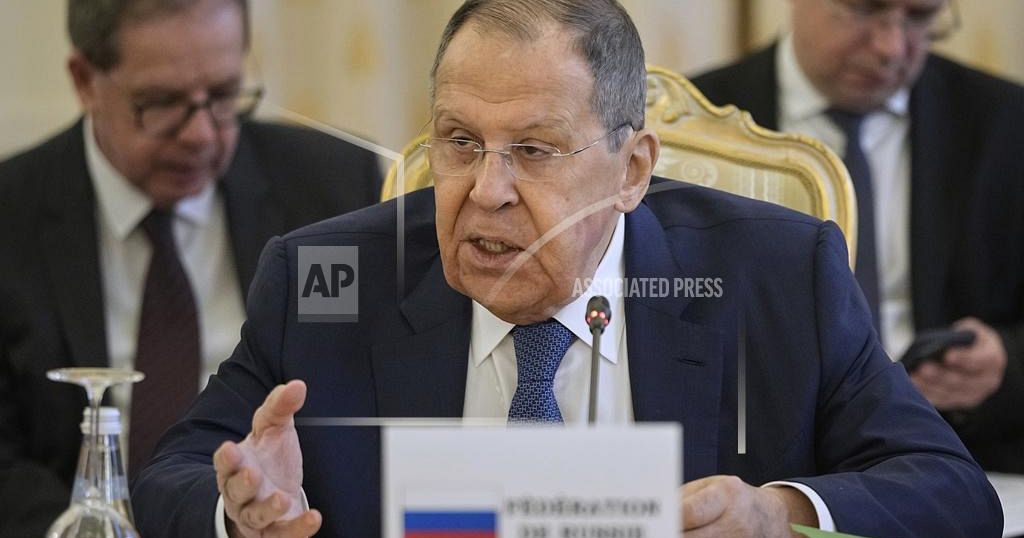
Russia’s Foreign Minister Sergey Lavrov has accused Ukraine of trying to “destabilize” the Sahel region on Thursday.
Lavrov made the comments at a news briefing in Moscow following talks with three of his counterparts from the Confederation of Sahel States.
“Some players outside the sahel continue attempts to destabilize the region. Besides former colonizers, this also includes the recently Kyiv regime, which openly supports terrorist groups in this part of Africa while its Western sponsors turn a blind eye to it.” Sergey Lavrov told reporters.
Malian Foreign Minister Abdoulaye Diop echoed his comments, saying his country considered Ukraine a “terrorist state”.
It comes after Mali’s government cut diplomatic ties with Ukraine last year over allegations that Kyiv aided an attack by armed groups in the West African country in which Malian soldiers and Russian mercenaries suffered heavy losses.
Africa
Trump imposes a hefty 50% reciprocal tariff on Lesotho
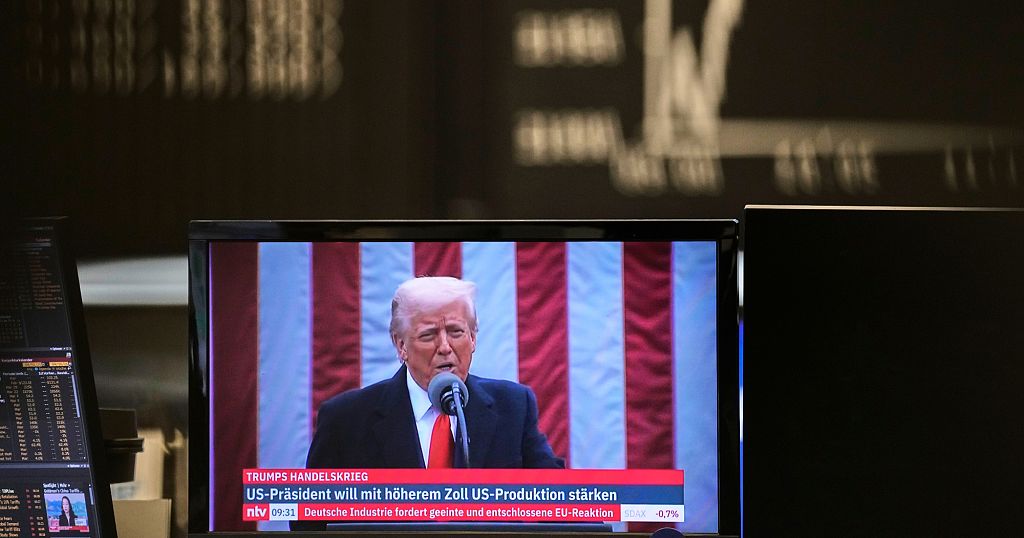
U.S. President Donald Trump has imposed a hefty 50% reciprocal tariff on Lesotho, a small, landlocked kingdom in southern Africa.
This makes Lesotho the country facing the highest tariff among all those on Trump’s long list of trade targets.
Despite being dismissed by Trump in March as a nation “nobody has ever heard of,” Lesotho, with a gross domestic product of just over $2 billion, has a significant trade relationship with the U.S.
The country has a trade surplus with the United States, largely made up of exports such as diamonds and textiles, including Levi’s jeans.
In 2024, Lesotho’s exports to the U.S. totaled $237 million, which accounts for over 10% of its GDP, according to Oxford Economics.
However, Trump’s new trade policies are set to upend this relationship. By imposing a broad range of tariffs on global trading partners, Trump is reversing decades of trade rules, which could drive up costs for consumers. Trump’s move is framed as a response to other countries’ trade barriers and tariffs against U.S. goods. Lesotho, for instance, imposes a steep 99% tariff on American products.
This situation highlights the end of the African Growth and Opportunity Act (AGOA), a trade agreement intended to provide African nations with preferential access to U.S. markets to foster their economic growth.
Trade experts see this shift as a major setback for African economies. It is compounded by cuts to USAID, the U.S. government agency that has long supported Africa with development aid.
Lesotho, which has a population of about 2 million and is entirely surrounded by South Africa, did not immediately comment on the tariffs.
However, the country’s foreign minister had previously expressed concerns that the reduction in foreign aid, particularly from the U.S. government, was hurting the nation’s health sector, which has been heavily reliant on international support.
Lesotho also struggles with one of the highest HIV/AIDS infection rates in the world, adding to the country’s difficulties.
The formula for calculating these tariffs takes into account the U.S. trade deficit with each country, using this figure as a measure of alleged unfair trade practices.
The ratio of the deficit to U.S. imports from each country determines the tariff, with the resulting rate being half of that ratio.
The sweeping tariffs declared by Trump could increase prices for Americans who depend on citrus from 1400 producers across southern Africa, according to Boitshoko Ntshabele, chief executive of the Citrus Growers Association in Johannesburg.
“South Africa does not compete with the citrus producers of the US,” Ntshabele said. “In fact, quite the opposite — we sustain customers’ interest when their local citrus is out of season, benefitting US citrus growers in the end.”
South African President Cyril Ramaphosa said Trump’s 30% tariffs on U.S. imports of South African products shows the urgent need for a new bilateral trade deal
Africa
Hungary withdraws from top war crimes court as Israel’s Netanyahu visits
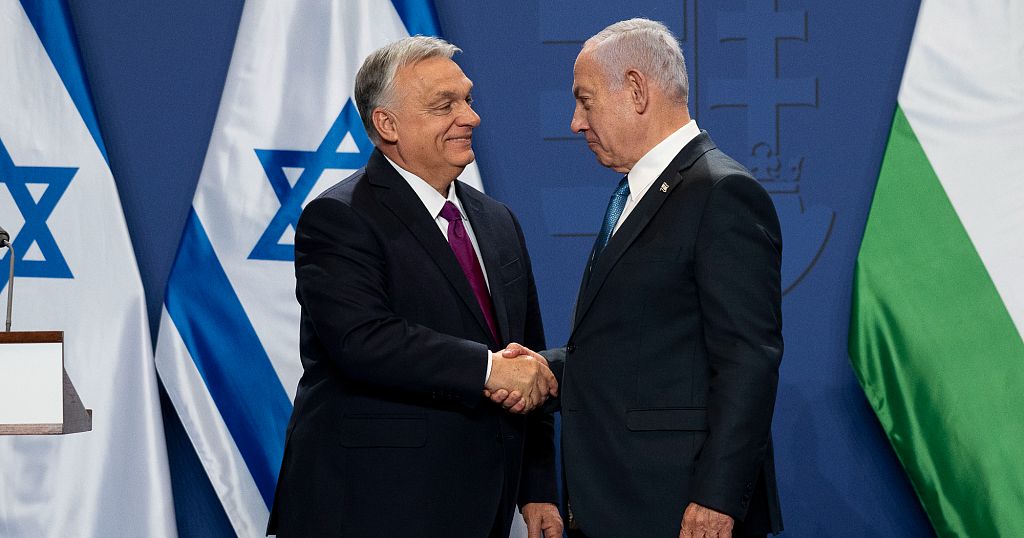
Hungary’s Prime Minister Viktor Orbán announced Thursday that his country will withdraw from the International Criminal Court, just as Israeli Prime Minister Benjamin Netanyahu arrived to red carpet treatment in the country’s capital despite an ICC warrant for his arrest.
Netanyahu’s visit to Hungary, which is scheduled to last until Sunday, was only his second foreign trip since the ICC issued the warrant against him in November.
During a joint news conference after their meeting, at which journalists were not permitted to ask questions, Netanyahu praised Hungary’s decision to withdraw from the ICC, thanking Orbán for taking a “bold and principled decision.”
“The ICC directs its actions against us fighting a just war with just means,” Netanyahu said.
“You are the first … state that walks out of this corruption and this rottenness, and I think it’ll be deeply appreciated, not only in Israel but in many, many countries around the world.”
The ICC, based in The Hague, Netherlands, said when issuing its warrant there was reason to believe Netanyahu and former Israeli Defence Minister Yoav Gallant had committed crimes against humanity in connection with the war in Gaza, which Israel launched after Hamas attacks on October 7, 2023.
Currently, all countries in the 27-member European Union, including Hungary, are signatories of the ICC, but the court relies on member countries to enforce its rulings.
Hungary joined the court in 2001 during Orbán’s first term as prime minister.
Defending his decision to pull Hungary out, Orbán said he believes the ICC “is no longer an impartial court, not a court of law, but a political court. And this was most clearly shown by the decisions regarding Israel”.
The Hungarian leader, regarded by critics as the EU’s most intransigent spoiler in the bloc’s decision-making, is seen as using some of the tactics that Netanyahu has been accused of employing in Israel: subjugation of the judiciary, antagonism toward the EU and cracking down on civil society and human rights groups.
The Israeli leader’s visit to Hungary was his second opportunity to travel abroad following the issuing of the warrant after he met with U.S. President Donald Trump in Washington in February.
It was also a chance to project an image of statesmanship while he faces mounting discontent at home.
Netanyahu has faced mass protests by Israelis who fear his decision to resume the war in Gaza endangers the lives of the remaining hostages held by Hamas.
-

 Conflict Zones2 days ago
Conflict Zones2 days agoUS attacks kill 4 in Yemen as second aircraft carrier sent to Middle East | Military News
-

 Lifestyle2 days ago
Lifestyle2 days agoCooking with kids teaches healthy eating and more
-

 Sports1 day ago
Sports1 day agoDaria Kasatkina: Russian-born tennis player ‘didn’t have much choice’ over switching allegiances to Australia
-

 Sports2 days ago
Sports2 days agoFreddie Freeman misses Los Angeles Dodgers game after injuring ankle in shower ‘mishap’
-

 Europe2 days ago
Europe2 days agoAlex Ovechkin: A leap year ploy could have altered hockey history as Capitals captain closes in on Wayne Gretzky’s ‘unreachable’ goal record
-

 Middle East2 days ago
Middle East2 days agoIsrael’s war on Gaza deadliest conflict ever for journalists, says report | Gaza News
-
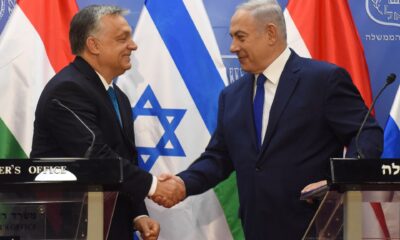
 Middle East2 days ago
Middle East2 days agoIsrael’s Netanyahu heads to Hungary in defiance of ICC arrest warrant | Gaza News
-
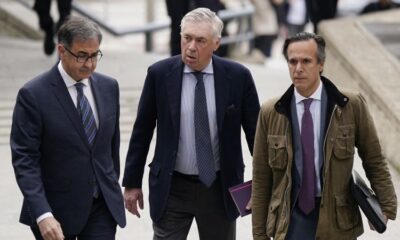
 Sports2 days ago
Sports2 days agoCarlo Ancelotti: Real Madrid coach goes on trial in Spain for tax evasion




